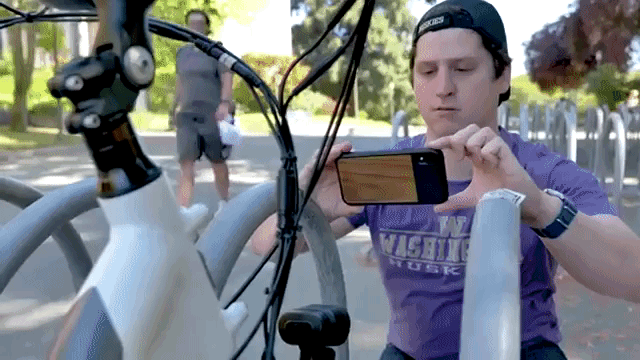2020-05-08T14:00:00-0500
Topics: Bike Protection, Bike Recovery
Topics: Bike Protection, Bike Recovery
Reposted from Rad Power Bikes, post originally by Justin Duckham, May 7, 2020.

We turned to Bike Index to get the lowdown on how you can keep your bike ... well, yours.
There are plenty of ways to keep your electric bike secure, whether that’s choosing the right lock or finding the perfect place to keep your ride overnight.
No matter how many steps you’ve already taken, it never hurts to hedge your bets.
That’s why we ask members of the Rad family to register their ride with Bike Index, a free, nonprofit service that's reunited nearly half a million cyclists with their property.
To mark National Bike Month, we wanted to dive a little bit deeper into the world of bike security. For that, there’s no better source than Craig Dalton, Bike Index's Executive Director (and the owner of a RadWagon!).
He gave us a few reasons why you should register your ride ASAP:

Adding your bike to the index is a free, simple process that puts it in the most widely used registry in the world.
Just sign up and enter your serial number. You can find it below the badge on the headtube on all current models. Some earlier models may have it on the underside of the bottom bracket.
If your bike is ever stolen, pawn shops or other potential buyers will be able to cross-reference the serial number with the database when a bike thief tries to sell it.
It also increases your chances of having your bike returned if it's recovered by the police.
"Bike Index is a global database of bicycle ownership, but we've layered on tools for law enforcement that preserves owner privacy," Dalton told us. “A lot of law enforcement agencies view Bike Index as their daily hot sheet, so when they see that new bike in a dark alley, they’ll know if it’s something they should be looking out for.”
It's a system that's led to a lot of success stories. Since launching in 2013, the nonprofit has recovered over $10 million worth of bikes, including plenty of Rad models.

Dalton was quick to note that electric bike owners would be wise to take even more precautions than your average cyclist.
“As ebikes started to gain popularity, they invited a whole new cadre of cyclists into the mix,” Dalton said. “These bikes became targets for criminals because they're new, which that means they can sell them on the black market for higher dollar amounts.”
By registering with Bike Index, you're not just protecting your own bike, you're also making it harder for bike thieves to operate -- and that's good for the whole ebike community.
"Our hope is that bike registration can put economic pressure on bike thieves and make it less economically viable to profit heavily from stolen bikes," Dalton explained. "It really puts the pressure on these guys who are stealing or selling. It just starts to be a very risky proposition for them."

Bike Index gives its users a small, proactive step they can take to help track down their stolen bike: pressing what Dalton describes as "the big red button."
On a user's Bike Index profile, there's a red button that says 'This bike is stolen or missing.' When you click it, an alert goes to police and pawn shop databases, and the Bike Index ambassador community, telling them look out for it on Craigslist, OfferUp, letgo and other sites.
"We've also built a lot of social media broadcast tools on top of the platform," Dalton added. "In the San Francisco Bay Area, for example, we have a stolen bike Facebook group. If you put that your bike's been stolen there, you'll find that members of the community who are just as angry about bike theft are going to try to support you and spread the word."
With over 850 community partners, that adds up to a pretty impressive reach.